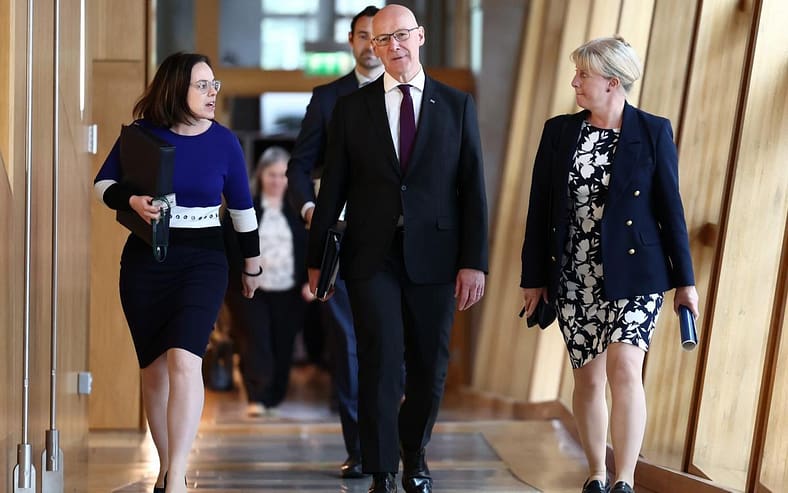Scottish businesses are struggling to recruit workers and staff are demanding larger pay rises because of SNP tax raids, research has found.
More than a third of Scottish businesses said they had seen either a “fair amount” of or a “significant” impact on their operations as a result of Holyrood tax policies, under which middle and high-income workers pay significantly more of their salaries to the Treasury.
According to a survey of more than 300 firms, carried out by the Fraser of Allander Institute at the University of Strathclyde in May, companies warned that they were struggling to attract or retain talent with Scottish taxes a “cause of employee dissatisfaction”.
Some workers were reluctant to relocate or remain in Scotland while existing staff were making “increased wage demands” to compensate for their loss of take home earnings.
In Scotland, there are six tax bands, double the amount in the rest of the UK, with workers earning £28,867 or above paying more than if they lived in England, Wales or Northern Ireland.
The research found that “a few” of the businesses were considering moving operations or investments south of the border due to the regime.
“While most firms report minimal impact from the current tax policy, a notable minority are experiencing challenges, especially in areas like staffing and investment,” Mairi Spowage, the director of the Fraser of Allander Institute, said.
“As the Scottish Budget approaches on December 4, the [government] will need to weigh whether the current tax balance is right – or if there’s any scope for change,” she added.


A minority of firms (28 per cent) said they had encountered “no impact” from devolved tax policies while 29 per cent said they had seen “a little” impact.
Meanwhile, 17 per cent said they had seen a “fair amount” of impact and another 17 per cent said the tax hikes had a “significant” effect on them.
At the weekend, the former SNP MP Stewart McDonald, who lost his Glasgow seat at the general election, blamed tax policies for a loss of support for his party among Scotland’s middle classes.
He said ministers, who often boast about their “progressive” policies, had ramped up taxes on middle earners with “an air of indifference” while condemning anyone who objected as “a regressive Thatcherite”.
Mr McDonald raised the case of Scots earning between £43,663 and £50,270, who face a marginal rate of income tax and national insurance 22 points higher than people on the same income in the rest of the UK.
Someone in Scotland on a salary of £50,000 pays £1,542 more in income tax than they would if they lived elsewhere in the UK, while a worker on £100,000 per year pays £3,346 more.
While those on the lowest incomes pay marginally less, the saving is a maximum of £23 per year.


Liz Smith, finance spokesman for the Scottish Tories, said the SNP Government needed to “sit up and listen” to businesses which were “suffering as a result of them making Scotland the highest taxed part of the UK.”
She added: “SNP tax hikes are putting Scottish firms at a competitive disadvantage with rivals south of the border and making it harder for them to recruit and retain skilled staff.
“But this is not just a problem for private businesses – the BMA and the BDA have spoken about the difficulty of attracting, and then holding on to, Scottish NHS doctors and dentists because of this tax gap.”
A Scottish government spokesman said: “Scotland has the most progressive income tax system in the UK, protecting those who earn less and asking those who earn more to contribute more.
“This additional income of around £1.5 billion helps support a more comprehensive set of services in Scotland compared to the rest of the UK, including free prescriptions and free university tuition.”

